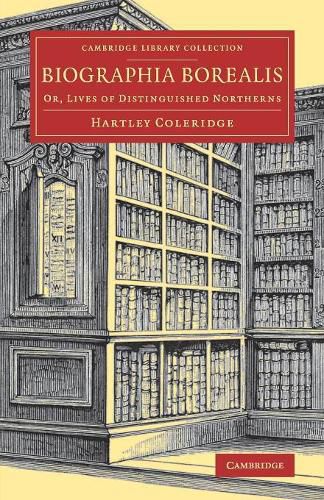Readings Newsletter
Become a Readings Member to make your shopping experience even easier.
Sign in or sign up for free!
You’re not far away from qualifying for FREE standard shipping within Australia
You’ve qualified for FREE standard shipping within Australia
The cart is loading…






Hartley Coleridge (1796-1849), the eldest surviving son of the poet S. T. Coleridge, himself tried to earn a living as a writer and teacher, but his own disposition, the result of a difficult upbringing during which his frequently absent father used him as the subject of scientific and psychological research, made it difficult for him to function in the real world, and he relied for much of his life on the charity of friends for both income and home. This 1833 work on the ‘lives of distinguished northerns’ was originally commissioned by a publisher who subsequently went bankrupt, but the thirteen lives presented here - including Andrew Marvell, Anne Clifford, Richard Arkwright, and James Cook - are described with Coleridge’s characteristic warmth. In his introduction, he makes a distinction between biography as part of public history and as personal, local or family history: these sketches definitely fall into the latter category.
$9.00 standard shipping within Australia
FREE standard shipping within Australia for orders over $100.00
Express & International shipping calculated at checkout
Hartley Coleridge (1796-1849), the eldest surviving son of the poet S. T. Coleridge, himself tried to earn a living as a writer and teacher, but his own disposition, the result of a difficult upbringing during which his frequently absent father used him as the subject of scientific and psychological research, made it difficult for him to function in the real world, and he relied for much of his life on the charity of friends for both income and home. This 1833 work on the ‘lives of distinguished northerns’ was originally commissioned by a publisher who subsequently went bankrupt, but the thirteen lives presented here - including Andrew Marvell, Anne Clifford, Richard Arkwright, and James Cook - are described with Coleridge’s characteristic warmth. In his introduction, he makes a distinction between biography as part of public history and as personal, local or family history: these sketches definitely fall into the latter category.